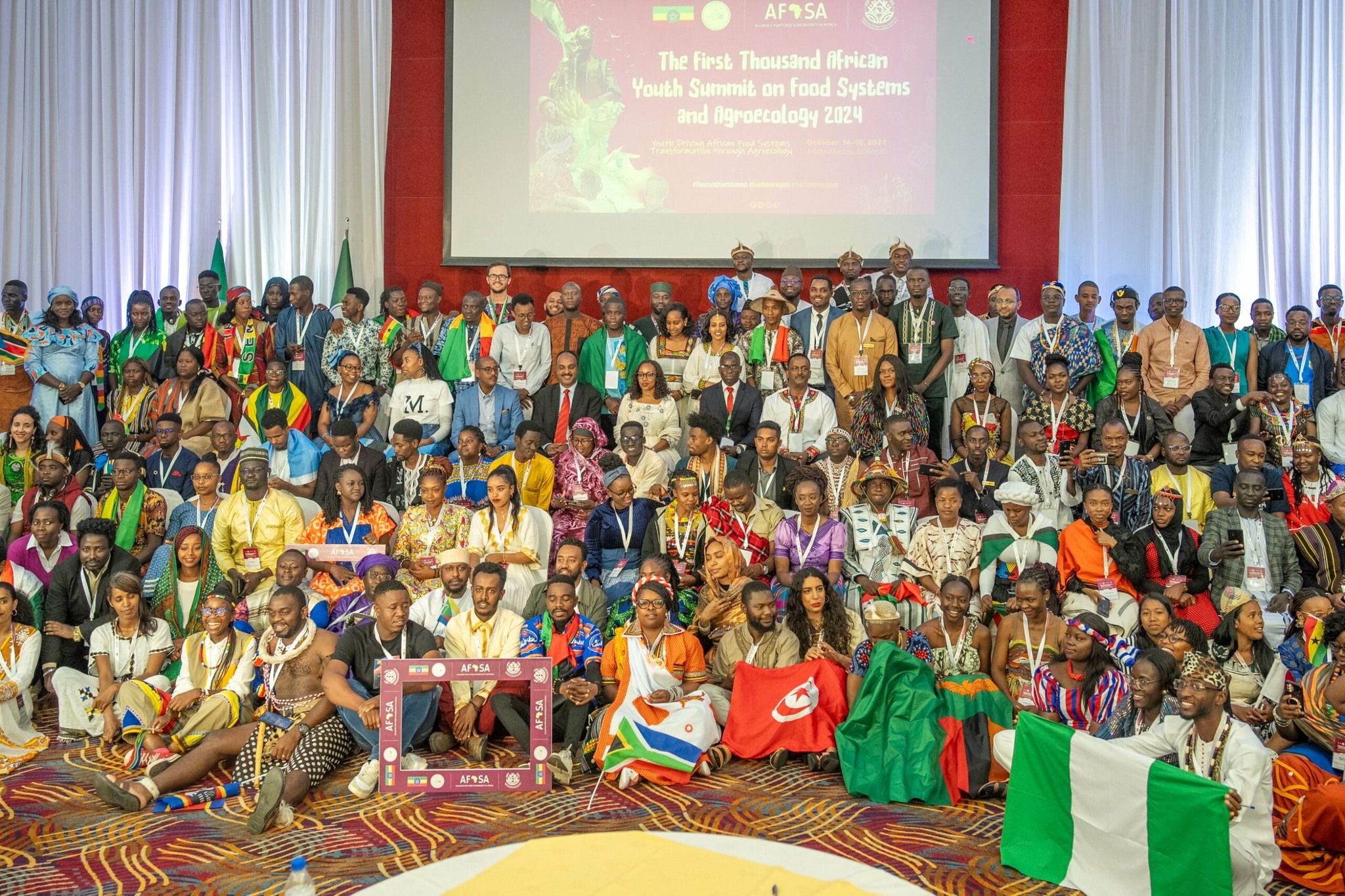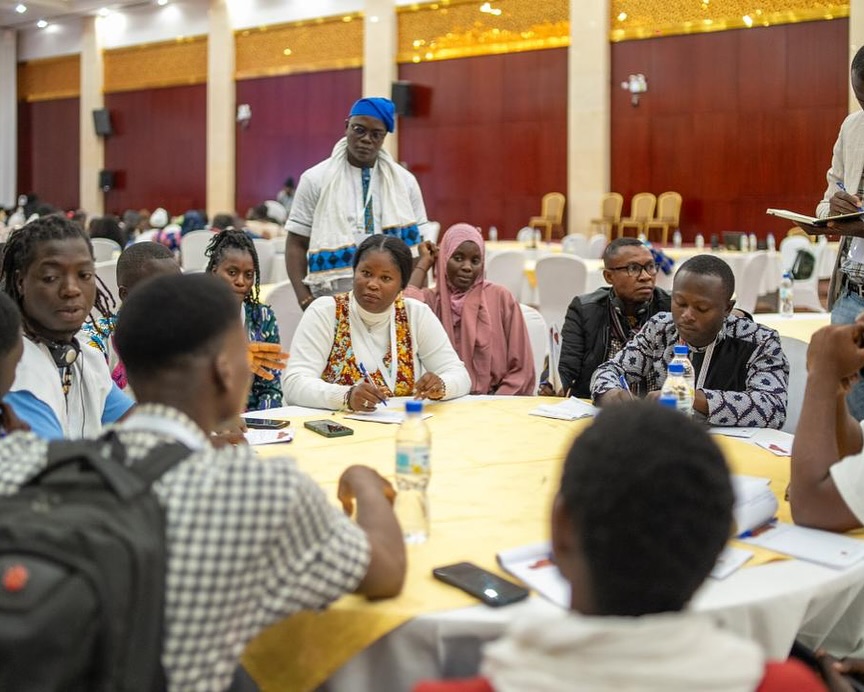
By Joyce Gyekye
About 300 young people from 47 African countries have pledged to promote agroecology in their countries as the best agronomic practice that promotes food security while addressing climate change.
This came out at the First Thousand Youth Summit on Food Systems and Agroecology in Addis Ababa, Ethiopia, from 14th to 17th October 2024, which had about 1,000 virtual participants. They affirmed in a statement that agroecology offers a sustainable agricultural practice and resists an economic system that prioritizes profit over people.
The three-day meeting was convened because young people “face the brunt of climate impacts, from job insecurity in climate-sensitive sectors to heightened food insecurity and health risks,” the statement said.
They renewed their commitment by joining a growing movement for people-empowered food sovereignty, where their voices and actions would shape the future of Africa’s food systems.
The group noted that their declaration is premised on the “current food system is failing both our generation and our continent.”
They declared their dedication to advocating for an inclusive transition to agroecology as the solution to the climate and biodiversity crisis, cultural erosion, rising food prices, and ongoing conflict on the continent.
Another commitment they pledged was to be “part of an African social movement that will ensure social justice, defend the dignity of our people, and advocate for peace and against war everywhere on the continent and the world.”
In a statement preceding the summit, Simon Bukenya, the youth coordinator of the Alliance for Food Sovereignty in Africa (AFSA), recounted climate change’s effects on the youth, such as job and food insecurity and health issues.
He acknowledged the role of the youth in finding solutions to the climate crisis’s effects on them now and in the future.
The AFSA General Coordinator, Dr Million Belay, encouraged the youth to challenge “the deeply ingrained narratives that Africa couldn’t feed its population without the application of huge chemical fertilisers and other harmful pesticides.”
He referred to how the “Russian-Ukraine war triggered the food crisis in Africa, and increased the cost of fuel and fertilisers, saying, “This should stop.”
Ethiopia’s Minister for Planning and Development, Dr Fitsum Assefa, commended the youth for organising the summit, which she said “is a testimony of their capabilities, innovations and what they can do to adapt and mitigate the challenges being posed by climate change on our food systems, ecology and our way of life”
She stated the pivotal role of the youth “at the centre of promoting agroecology which is the pathway of food sovereignty, environmental protection and social equity”
Karen Nekesa Samukoya from Seed and Knowledge Initiative, SKI, an affiliate of AFSA, entreated the youth to learn from the older generation who are equipped with “broader perspectives on the struggles and successes of past agricultural practices that will you”.
She stressed the need for the youth to leverage modern technology, such as “social media and wisdom from our elders, to tell compelling stories that promote indigenous foods.”
The Director of Health of Mother Earth Foundation, HOMEF, Nigeria, Dr Nnimmo Bassey, in a passionate clarion call, “Arise Youth of Africa, let us decolonise our food system,” noted that food is becoming an instrument of control and power, “and we can’t leave it to corporates and foreigners.”
He admonished the youth to critically evaluate the solutions industrial agriculture proponents presented and separate the chaff from the wheat.
Demands by the youth
At the end of the summit, the youth made some demands of their governments, such as increased investments in agroecology and just climate action to enable climate adaptation and mitigation.
Some showcased innovations, including organic fertilisers and pesticides, that promote biodiversity and enhance soil health.
AFSA is the largest civil society organisation on the continent, with membership in 50 African countries and representing 200 million farmers.
It seeks to influence policies that promote African solutions to food sovereignty and a transition from increasing industrialized agriculture to agroecology.



















